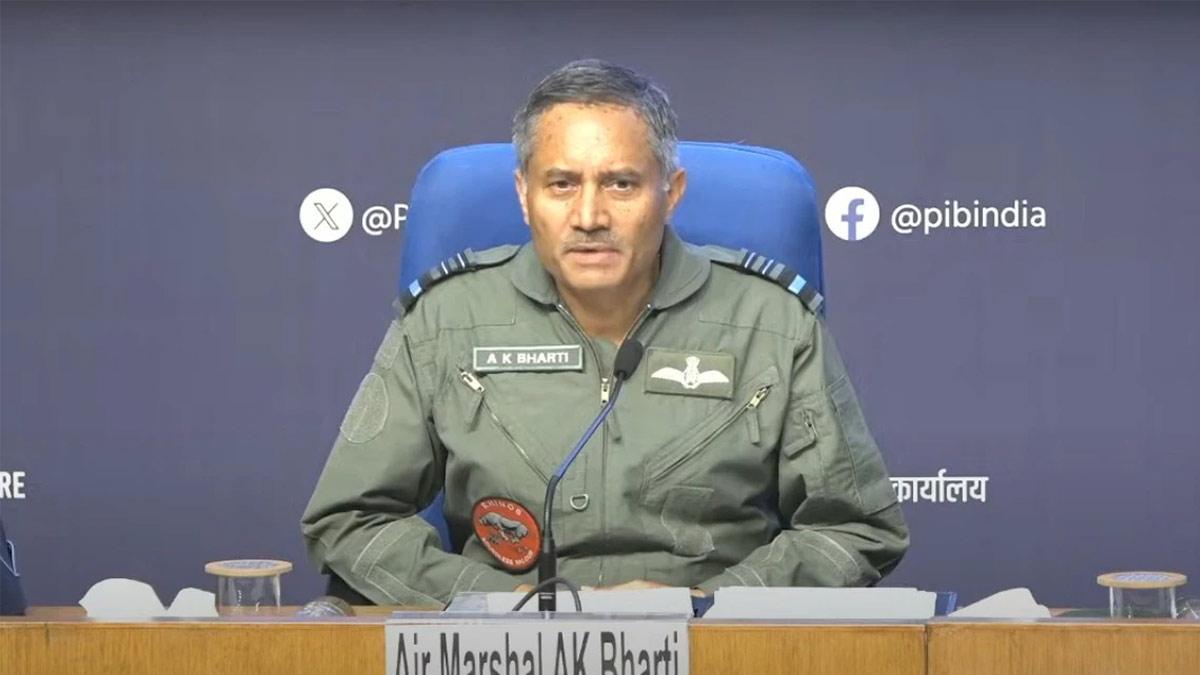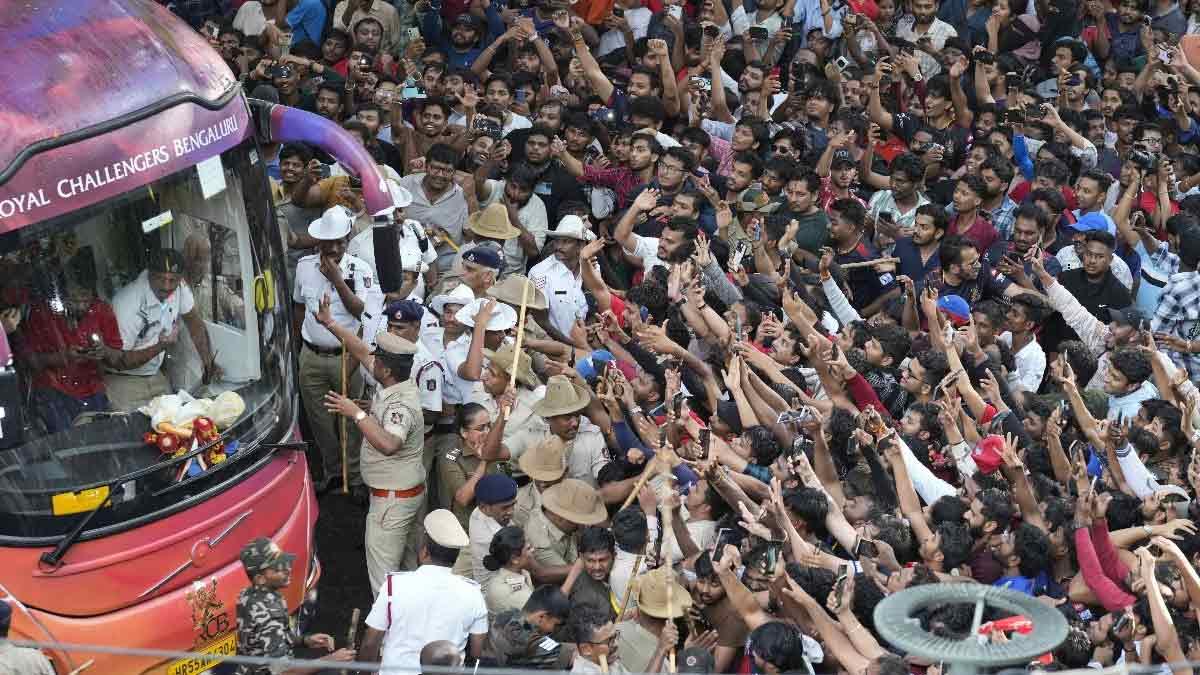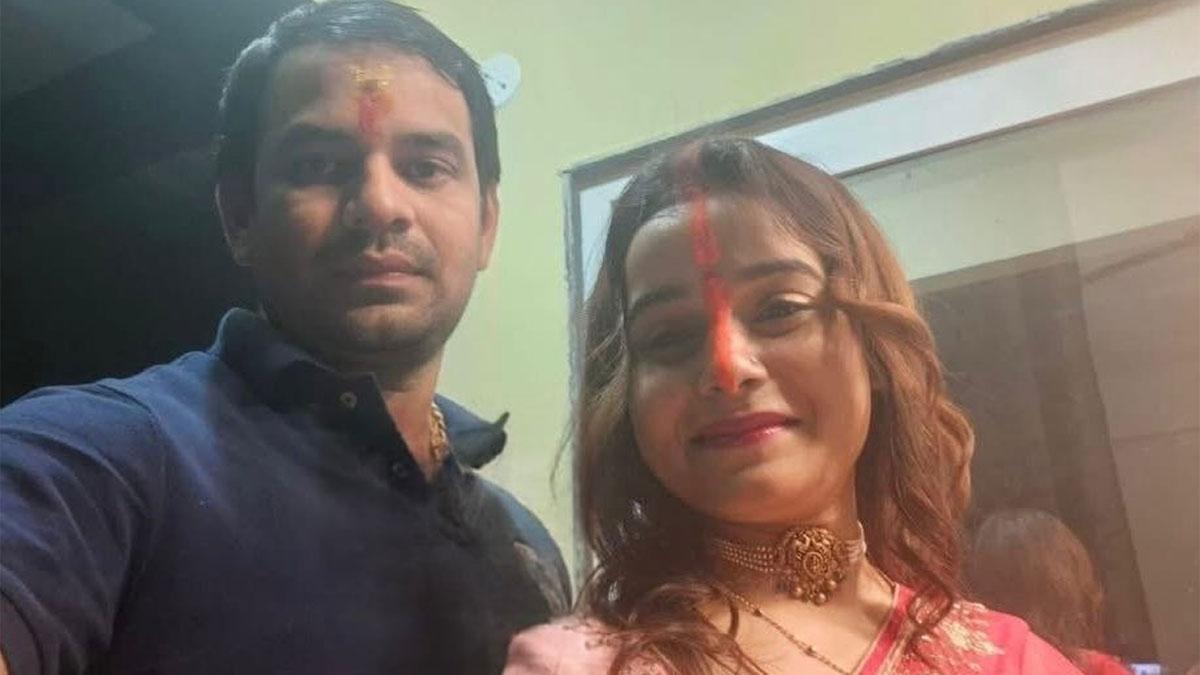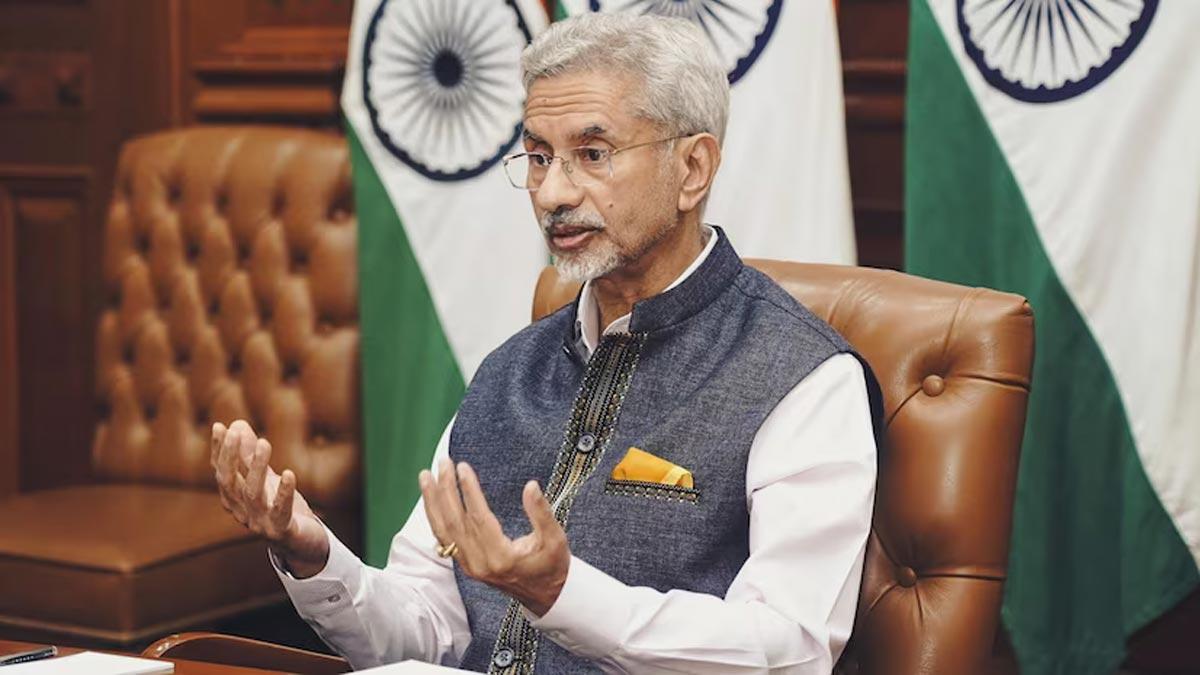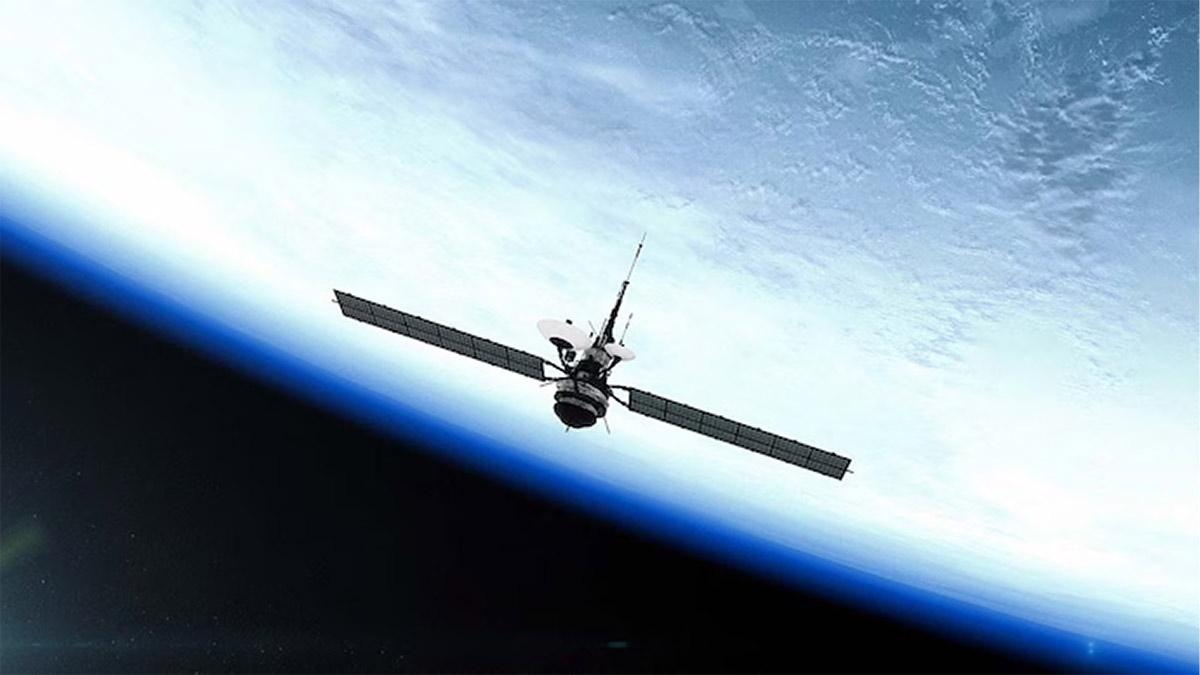In the midst of increased regional tensions, Air Marshal A.K. Bharti on Monday asserted the Indian Armed Forces' readiness for any upcoming conflict, assuring that India's military is fully trained and equipped to meet emerging threats in the wake of the success of Operation Sindoor.
If India is pushed into another battle, our forces are prepared for it," Air Marshal Bharti stated in a comprehensive media briefing. "The next battle will not be similar to the previous one—it will be a cat-and-mouse game where remaining ahead of the curve is imperative.
Looking back at the recent exercise, Bharti stressed that the Indian Air Force (IAF) was not just "ready" but also "trained and equipped" to cope with the singular dynamics of the confrontation. "Technology is going along very quickly, both for us and against us. We are ready for that."
With a singular message to Pakistan, Air Marshal Bharti used a line-by-line quote from the Ram Charit Manas — "Bhay bin hoye na preet" (There is no love without fear) to highlight the calculated and conscious ramping up by India as a strong warning to its opponent.
Director General of Military Operations (DGMO) Lt. Gen. Rajiv Ghai also spoke at the briefing, explaining the crucial role of India's multi-layered air defence and counter-drone capabilities during Pakistan's retaliatory aerial attack on May 9–10. "We were expecting the attack and deployed a robust air defence grid that effectively countered every aerial threat," he stated.
The DGMO defended Operation Sindoor as a forceful retaliation after the April 22 Pahalgam terror attack in which 25 Indian tourists and one local pony operator were killed by Pakistan-backed militants. "The boat of Pakistan's sins was overflowing. It was the right time to take strong action," he announced.
Air Marshal Bharti reasserted that India's first airstrikes on May 7 targeted exclusively terrorist infrastructure. "Our intention was clear—target terror hotbeds. Unfortunately, the Pakistani military decided to make things worse by aligning itself with terrorists," he said.
He complimented India's air defence, terming it "an impregnable shield." The performance of both aged, battle-hardened systems and new indigenous ones such as the Akash missile battery were praised. "Each and every attempt by Pakistani UCAVs and missiles to enter our airspace was thwarted," he said.
The briefing included a video montage to a poem by celebrated Hindi poet Ramdhari Singh Dinkar, and technical slides presenting the wreckage of PL-15E missiles and drones shot down by Indian forces with laser-based and electronic warfare technologies.
Earlier during the day, Prime Minister Narendra Modi presided over a high-level security meeting with Defence Minister Rajnath Singh, External Affairs Minister S. Jaishankar, and National Security Advisor Ajit Doval. Strategic preparedness and diplomatic reactions were the topics of discussion.
After India's May 7 air strikes that leveled nine terror camps and killed more than 100 terrorists, according to reports, Pakistan hit back with intense cross-border shelling and air intrusions. India retaliated with a comprehensive 90-minute air campaign that targeted 11 Pakistani airbases—most of them strategically significant.
A mutual ceasefire agreement was reached by Saturday afternoon, halting hostilities temporarily.
Read also| DGMO: Pakistan Army Suffered 35-40 Casualties in Indian Strikes

